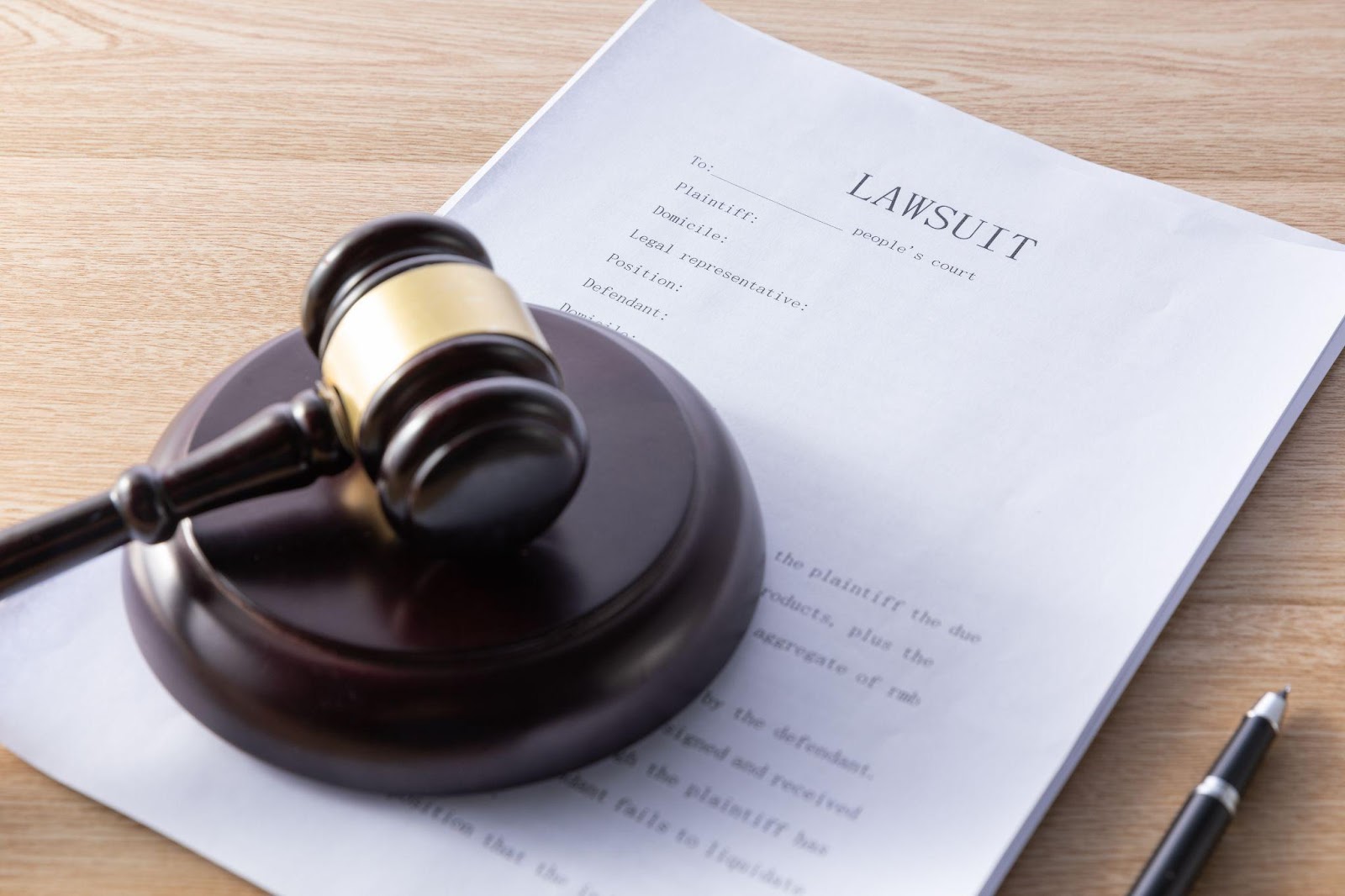
Nearly 95% of civil lawsuits settle before reaching trial, with the majority of settlement agreements occurring in the crucial weeks and months following the discovery phase.
After months of depositions, document exchanges, and witness interviews, the discovery period’s conclusion marks a pivotal turning point where cases either resolve through negotiation or advance toward courtroom battles.
Understanding what happens after discovery in a lawsuit can mean the difference between achieving a favorable settlement and facing the uncertainty of trial proceedings that may stretch for additional months or years.
Motion Practice and Legal Arguments
The completion of discovery opens the door to various motions that can significantly impact your lawsuit’s trajectory. Motion practice represents the formal process where attorneys present legal arguments to the court, seeking rulings on specific issues that emerged during discovery.
Summary judgment motions represent the most common post-discovery filing, where one party argues that evidence clearly supports their position and no trial is necessary.
Courts evaluate these motions by examining whether genuine disputes exist regarding material facts requiring jury consideration. Motions to exclude evidence allow attorneys to request that certain testimony or documents be deemed inadmissible at trial.
Other common motions include requests for sanctions against parties who failed to comply with discovery obligations and motions to compel further discovery when responses were inadequate.
These motions create opportunities to resolve legal issues before trial while potentially narrowing disputes that would need jury resolution.

Settlement Negotiations and Mediation
The period following discovery often represents the most productive time for settlement discussions, as both parties now possess complete information about their case strengths and weaknesses.
Armed with depositions, expert reports, and documents, attorneys can make realistic trial assessments and understand personal injury settlement amount examples that may apply to their case.
Settlement negotiations may occur directly between attorneys or through formal mediation where neutral third parties facilitate discussions. Many courts require mediation before trial, recognizing its effectiveness in resolving disputes without courtroom expense.
Discovery often reveals information that motivates settlement, such as unfavorable testimony or damaging documents, while strong evidence can strengthen negotiating positions and lead to more favorable terms.
Understanding how personal injury settlements are paid out helps parties evaluate different settlement structures and payment options.

Pre-Trial Preparation and Case Strategy
Cases that do not settle after discovery enter intensive pre-trial preparation where attorneys refine trial strategies based on evidence gathered during discovery. This preparation involves multiple components requiring careful coordination.
Witness preparation becomes a priority as attorneys work with clients and witnesses to review expected testimony and prepare for cross-examination.
Expert witnesses require particular attention, as their opinions often form the cornerstone of technical cases.
Trial strategy development involves analyzing evidence to determine the most persuasive presentation methods, including witness order, demonstrative exhibits, and anticipating opposing arguments.
Case Management and Scheduling
Courts maintain active oversight of cases following discovery completion, establishing schedules and deadlines that move litigation toward resolution.
Case management conferences allow judges to monitor progress, address procedural issues, and set realistic timelines for remaining pre-trial activities.
Scheduling orders typically establish deadlines for several key milestones in the post-discovery phase:
- Filing deadlines for summary judgment motions and other dispositive motions that could resolve the case before trial.
- Expert witness designation deadlines requiring parties to identify and provide reports from expert witnesses who will testify.
- Pre-trial conference dates where attorneys meet with judges to discuss trial logistics and resolve remaining procedural issues.
- Motion filing deadlines establishing cutoff dates for various types of motions to ensure adequate time for court consideration.
- Settlement conference scheduling to encourage continued negotiation efforts before committing court resources to trial.
- Trial date assignment providing all parties with firm scheduling expectations and preparation deadlines.
These deadlines create structure and momentum that encourage case resolution while ensuring efficient use of court resources and minimizing delays that can prejudice the interests of all parties involved.
Expert Witness Testimony and Reports
Expert witnesses often play decisive roles in post-discovery litigation, particularly in cases involving technical issues, medical questions, or complex financial matters.
The expert witness process intensifies after discovery completion as attorneys finalize witness lists and prepare for trial.
Expert witness reports provide detailed analyses of evidence gathered during discovery, offering professional opinions that help juries understand complex subjects. These reports must comply with specific legal standards and court deadlines.
Daubert hearings may occur when parties challenge expert testimony admissibility, requiring judges to evaluate whether proposed opinions meet legal standards for reliability and relevance.
Trial Preparation Timeline
The timeline between discovery completion and trial varies significantly based on court schedules, case complexity, and settlement negotiations. Most cases require several months of preparation time to adequately prepare for trial.
Initial trial preparation focuses on organizing evidence collected during discovery into a coherent trial strategy. Attorneys review depositions to identify favorable testimony while preparing to address unfavorable statements.
Advanced preparation involves intensive witness coaching, jury selection strategy development, and creation of trial notebooks that organize all case materials for quick reference during proceedings.
Frequently Asked Questions About Discovery in Lawsuits
Understanding the practical aspects of post-discovery litigation helps clients navigate this complex period with realistic expectations and informed decision-making capabilities.
How Long Does It Take to Reach Trial After Discovery Ends?
The timeline from discovery completion to trial typically ranges from three to twelve months, depending on court schedules, case complexity, and settlement negotiations.
Simple cases with willing parties may reach trial more quickly, while complex litigation often requires extended preparation periods. Understanding the complete filing a lawsuit process helps parties prepare for the various stages leading to trial.
Can New Evidence Be Introduced After Discovery Closes?
Courts generally prohibit new evidence after discovery deadlines, with limited exceptions for evidence that could not reasonably have been discovered earlier. Parties must typically seek court permission and demonstrate good cause for introducing post-discovery evidence.
What Percentage of Cases Settle After Discovery?
Approximately 95% of civil cases settle before trial, with many settlements occurring during the post-discovery period when parties have complete information about case strengths and weaknesses.
Settlement rates vary by case type and jurisdiction. For those considering self-representation in settlement negotiations, resources like writing your own settlement demand letter provide valuable guidance, though professional legal assistance often proves beneficial.
How Do Settlement Negotiations Work After Discovery?
Settlement discussions may occur through direct attorney negotiations, formal mediation sessions, or court-ordered settlement conferences. The discovery process often provides the information necessary for realistic settlement evaluations and productive negotiations.
What Happens if Settlement Negotiations Fail?
Cases that do not settle proceed to trial preparation, including witness coaching, exhibit preparation, and strategy refinement. Courts typically provide firm trial dates to encourage continued settlement efforts while ensuring case resolution.
Can Cases Still Settle After Trial Begins?
Settlement remains possible even after trial commencement, with some cases resolving during jury selection, opening statements, or witness testimony. However, settlement becomes less likely as parties invest more resources in trial proceedings.
Alternative Dispute Resolution Options
Even after discovery completion, parties retain access to various alternative dispute resolution methods that can provide faster and less expensive case resolution than traditional trial proceedings. These alternatives often prove attractive when discovery has revealed information, making trial outcomes uncertain.
Arbitration provides a more formal alternative to mediation, where neutral arbitrators render binding decisions after hearing evidence and arguments.
Unlike mediation, arbitration results in definitive outcomes that parties must accept, though the process typically costs less and concludes faster than court trials.
Binding arbitration eliminates appeal rights in most circumstances, making it suitable for parties seeking final resolution without extended litigation uncertainty.
Navigate Your Post-Discovery Legal Journey with Confidence
Understanding what happens after discovery in a lawsuit represents just the beginning of successfully managing the complex legal decisions that determine your case’s ultimate outcome. The critical months following discovery completion often determine whether you achieve favorable settlement terms or face the uncertainties and expenses of trial proceedings.
At Baxley Maniscalco, our experienced litigation attorneys understand the strategic opportunities and challenges that emerge during the post-discovery phase.
From evaluating settlement proposals to preparing compelling trial presentations, we provide the expertise necessary to maximize your chances of success while minimizing the time and costs associated with extended litigation.
Our track record includes successful outcomes in various case types, as evidenced by our client testimonials and case results.
Don’t navigate the crucial post-discovery period without experienced legal guidance.
Contact Baxley Maniscalco today to schedule a confidential consultation and discover how our comprehensive litigation services can help you achieve the best possible outcome in your legal matter, whether through strategic settlement negotiations or effective trial advocacy.
Can't find what you're looking for? Search our site below.










